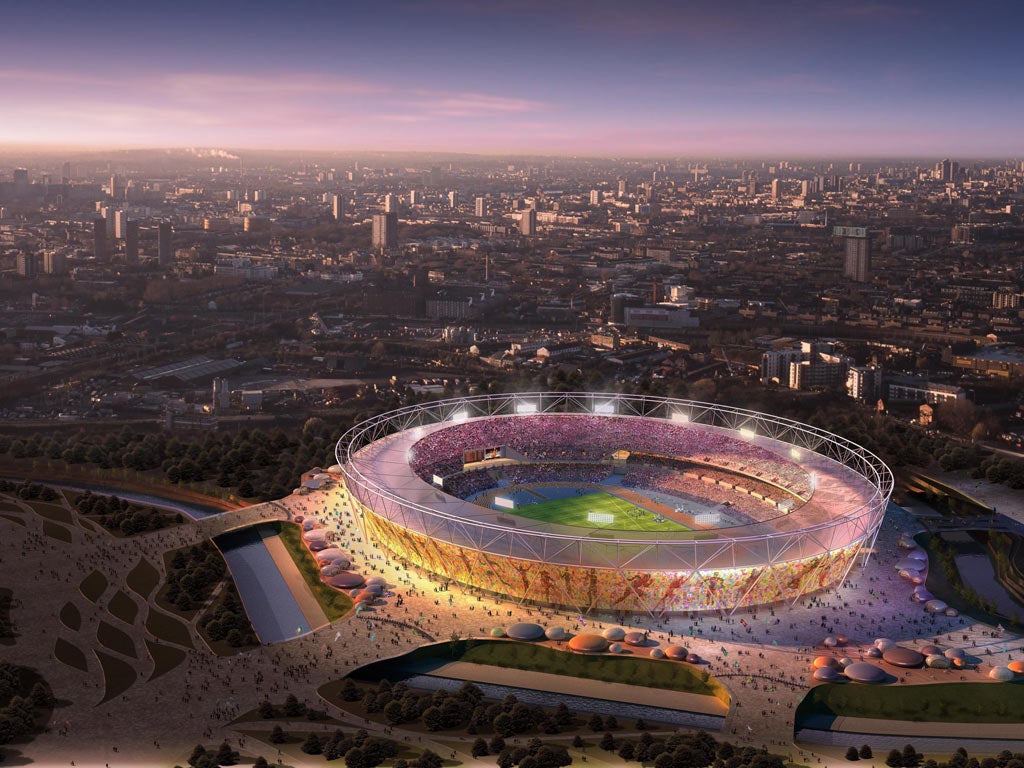Olympic chiefs under fire over sponsor's links to Bhopal disaster
Games organisers did deal with owner of chemical firm that refuses to pay clean-up costs

Your support helps us to tell the story
From reproductive rights to climate change to Big Tech, The Independent is on the ground when the story is developing. Whether it's investigating the financials of Elon Musk's pro-Trump PAC or producing our latest documentary, 'The A Word', which shines a light on the American women fighting for reproductive rights, we know how important it is to parse out the facts from the messaging.
At such a critical moment in US history, we need reporters on the ground. Your donation allows us to keep sending journalists to speak to both sides of the story.
The Independent is trusted by Americans across the entire political spectrum. And unlike many other quality news outlets, we choose not to lock Americans out of our reporting and analysis with paywalls. We believe quality journalism should be available to everyone, paid for by those who can afford it.
Your support makes all the difference.Olympic organisers are under growing pressure to reconsider a lucrative sponsorship deal that was awarded to a controversial US chemicals firm which has "failed to address one of the worst corporate-related human rights disasters of the 20th century".
Amnesty International will today demand that Lord Coe publicly reveal how the deal with the Dow Chemical Company (Dow), which gives it "exclusive marketing rights" to the main stadium, complies with London 2012's ethical code.
Dow is the 100 per cent owner of Union Carbide Corporation (UCC), the company responsible for the 1984 gas disaster in Bhopal, India, which is thought to have killed 10,000 in its immediate aftermath and 15,000 since.
The company's name will be emblazoned on the £7m artwork "wrap" around the main stadium, guaranteeing months of exposure. Dow and UCC are defendants in a public-interest litigation case in an Indian state court for clean-up of the factory site. They have refused to comply with an application by an Indian Ministry request of 100m rupees (£1.26m) as an advance for clean-up costs.
Health and human rights groups in Bhopal continue to report high rates of congenital deformities and cancers among families who are forced to use contaminated groundwater sources.
More than 10 independent scientific studies show dangerous levels of chemicals such as carbon tetrachloride in water supplies. Earlier this month, The Independent witnessed children as young as eight filling sacks with contaminated soil from the factory landfill to use for building material in their homes.
MPs want the Government to intervene in the controversial deal, which threatens to overshadow the image of the London Games. Critics say Lord Coe must explain Locog's admission that the deal was struck after Dow provided "a full briefing" about Bhopal. The Bhopal Medical Appeal accuses Olympics organisers of "playing dumb over universal legal principles".
Tessa Jowell, the shadow Olympics minister, said last night: "Given the allegations which have been made about Dow's responsibilities in Bhopal it is clear that there are further pressing questions that they must answer."
Home Affairs Select Committee chair Keith Vaz has tabled an Early Day Motion condemning the decision. "If sustainability is at the heart of Locog's decision making as they claim, they need to look long and hard at their decision to do business with Dow," he said.
Dow bought UCC in 2001. It denies responsibility for UCC's Bhopal liabilities and claims the $470m paid by UCC in 1991 to disaster victims (now contested in the Supreme Court) was final. This is in stark contrast to the way it paid off UCC's asbestos-related liabilities in the US, which dated back to the early 1970s.
Dow, Olympic partner until 2020, said: "Today, the state government owns and controls the site and is in the best position, and has the authority under the direction of the courts to complete whatever remediation may be necessary."
A London 2012 spokeswoman said Dow had undergone a "rigorous procurement process. We asked Dow for, and received, a full briefing on the history of the 1984 Union Carbide Bhopal gas tragedy and details of ongoing litigation," she added.
Join our commenting forum
Join thought-provoking conversations, follow other Independent readers and see their replies
0Comments